Betting Big on Lion Tourism in Gujarat
August 9, 2020
2 Comments

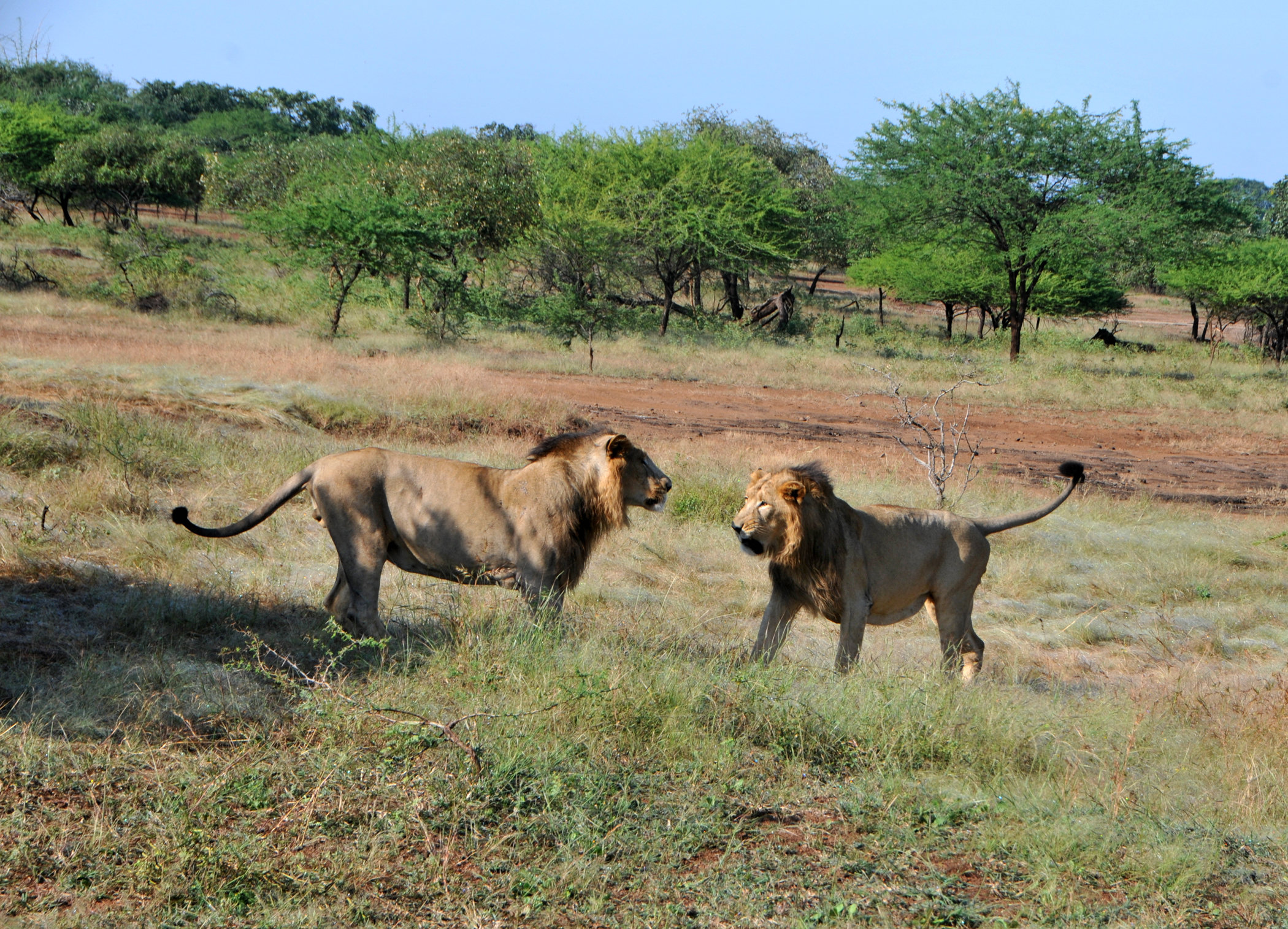
Gir National Park and Wildlife Sanctuary in Saurashtra is the remaining habitat of the Asiatic lion, and most visitors get to see at least one over a two or three-day stay. This wildlife reserve also boasts a thriving popultion of leopard, sambar, spotted deer, the world’s only four-horned antelope, nilgai, wild boar, striped hyena, golden jackal, Indian hare, porcupine and other mammals. Rusty-spotted cat and pangolin have also been photographed in these forests. Gir is declared an Important Bird Area by Birdlife International. It is also a paradise for reptiles with a large population of marsh crocodiles.
However, Gir was largely a neglected destination for the hospitality sector till recent times The first two places to stay in Gir were both government-run – a hotel started by ITDC that was later taken over by Tourism Corporation of Gujarat Ltd and Sinh Sadan, a forest department run rest house in the former jungle lodge of the Nawab of Junagadh. In the 1990s, Shriraj Lakhia started Mainland jungle Lodge built from local stone and adjoining the boundaries of the sanctuary where you could hear and even see the lions from your cottage itself.
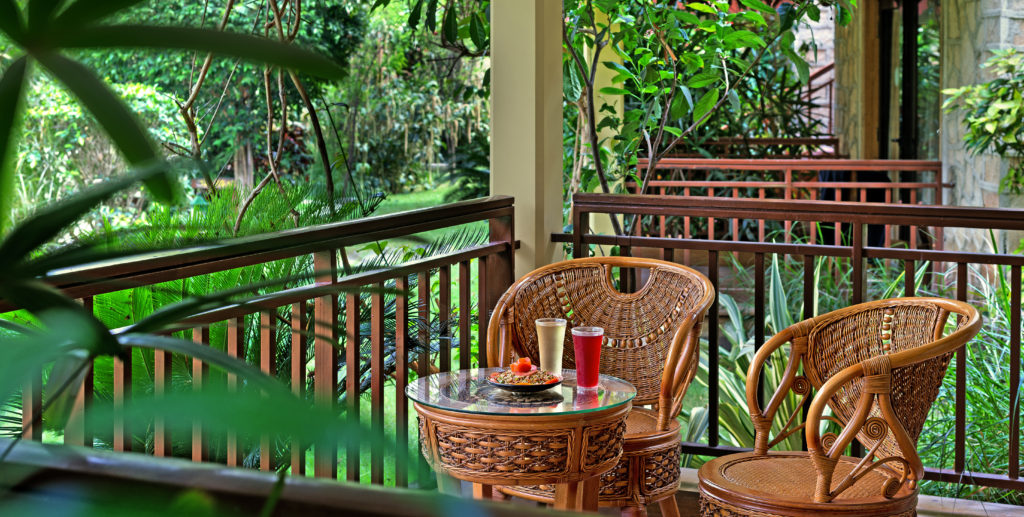
The tourism scene began to change in the 2000s when Taj Group opened the Gir Lodge, Camps of India launched Lion Safari Camp and the mango orchard of Naveen Modha was converted into Gir Birding Lodge with the management by birder Mohit Agrawal who has lodges in Uttarakhand and other states. Some of the mango orchard owners also started letting out rooms.
The Fern Gir Forest Resort upped the ante with a deluxe 40-room resort. Terra Ecotourism launched Asiatic Lion Lodge and recently also a lodge in Velavadar National Park. Today, visitors can choose from over 30 accommodation options in the Gir-Somnath district from small homestays to big resorts like Club Mahindra’s Gir Resort and the ultra-luxe Woods at Sasan.
Tourism in Gir got a boost with the “Khushboo Gujarat Ki’’ series of advertisement films of Gujarat Tourism starring Amitabh Bachchan. The growing flow of tourists from different parts of India to see the `Babbar Sher’ (majestic lions) described by Amitabh also resulted in a growing interest among hoteliers and eco-camp operators to set up properties in Gir.
The Government of Gujarat has also responded to the challenge of the increasing tourist flow with facilities like online bookings of permits.
World Lion Day is the brainchild of big cat enthusiasts Dereck and Beverly Joubert, launched in 2013 with the National Geographic and the Big Cat Initiative to protect the remaining big cats living in the wild. On the occasion of World Lion Day, FEA spoke about ecotourism in Gujarat with Kishan Kotecha, owner of Fern Hotels and Resorts at Gir, Polo Forests and Dwarka, with a dive centre at The Fern Sattva Resort in Dwarka, with a resort at Little Rann of Kutch in the pipeline.

FEA: How did you enter the business of ecotourism resorts?
Kishan Kotecha: It started out with a passion. My father Kishor Kotecha is a wildlife enthusiast and we used to drive down to Gir all the time. As I started joining him, his love for the lions rubbed off on me too. As my father started becoming more and more active in wildlife conservation efforts, and his love for Gir grew stronger, we decide to start a resort which is now known as The Fern Gir Forest Resort. We had been involved in hospitality for some time before but this property kick-started our venturing into ecotourism resorts.
FEA: What makes you bet big on ecotourism in Gujarat with properties at Gir, Dwarka, Little Rann and Polo Forests?
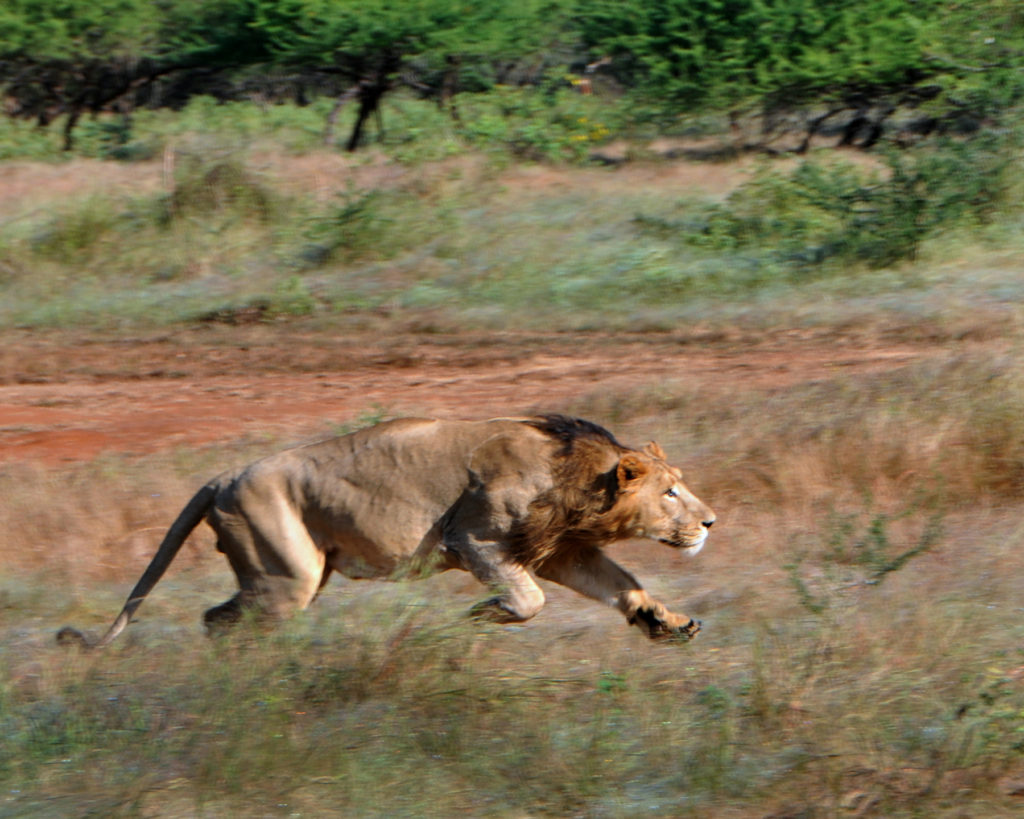
Kishan Kotecha: We think people go for a vacation to experience something that is not normal for them; and with the current pace of life it helps to take breaks from time to time. With the environment bearing the brunt of rampant growth in most cities today, people literally want a breath of fresh air. Keeping that in mind we developed our eco-resorts, each giving a different experience than the other. You’ll find a world-famous deciduous forest with rich wildlife in Gir. Together with a pilgrimage to Dwarka you can enjoy sea scenery, marine life, birding, and heritage sites in Dwarka. The Little Rann of Kutch offers endangered wildlife and species characteristic of the desert together with a unique desert driving experience. And you have mountains, valley, rivers and ancient forgotten temples in the Polo forest. Though they are all very different from each other, at the core they are all places where you can repeatedly go for a convenient holiday to experience different facets of nature and culture.
FEA: How did the design and theme of each property come about? 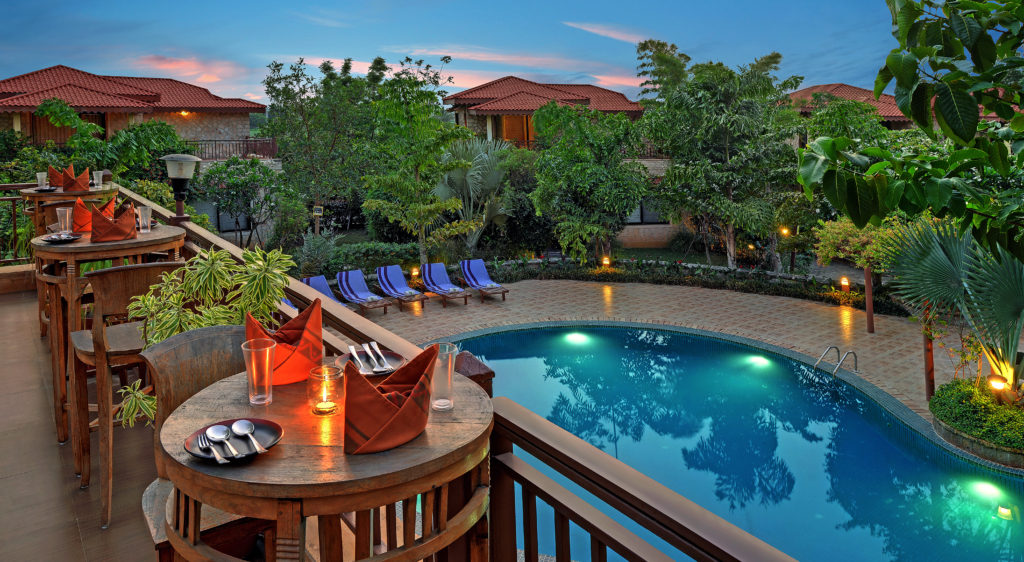
Kishan Kotecha: All our properties are based at very different locations and this changes a lot of things when it comes to design, architecture, ambience, facilities and materials. As developers, we make sure each of our properties reflects the local environment and culture. We want to give guests a local flavor while maintaining a high level of comfort and luxury that the contemporary holiday-goer is looking for. We try to say stories with all our properties, go to The Fern Gir Forest Resort and you will feel like you are in a jungle with greenery all around, information on birds and animals, stories on Asiatic lions, books on Gir forest, and the overall decor being that of a forest resort. You will feel like you are living in harmony with nature. The Fern Sattva Resort Dwarka is filled with paintings of Krishna from across India, we have a flamboyant version of Shrimad Bhagavad Gita at the reception which displays a different shloka every day. We even have a library that houses wide range of books on Shri Krishna and his legends. We try to incorporate the theme even in our services, like our multi-cuisine restaurant Tandul Bhog is based on the legend of Sudama and Shri Krishna’s meeting in Dwarka, it serves kheer to all its guests as a remembrance of the rice Sudama had offered Shri Krishna. Similarly, The Fern Sattva Resort Polo Forest not only pays homage to the lost temples and their legends that call Polo home, but it also has an architectural theme that will make you feel like you are in a jungle amidst ruins. We also offer activities that go with the themes, like we offer anything from guided bird-watching walks in Gir, breakfast by the river in Polo, to private boat picnics, dolphin-spotting boat trips and scuba diving in Dwarka.
This is all in the front of the house, at the back of the house we train and employ local people, including women, who lend their support in making our resorts and their services as authentic as possible. We plan to stick to the same formula when we start the development of our fourth property in Little Rann of Kutch. We work to make sure that every guest experiences the local hospitality – the warm greetings at the reception, the food, the design, the information, the signature experiences, every little detail that contributes to the overall feel and theme of the properties.
FEA: What are the eco-friendly features at any or each of your properties?
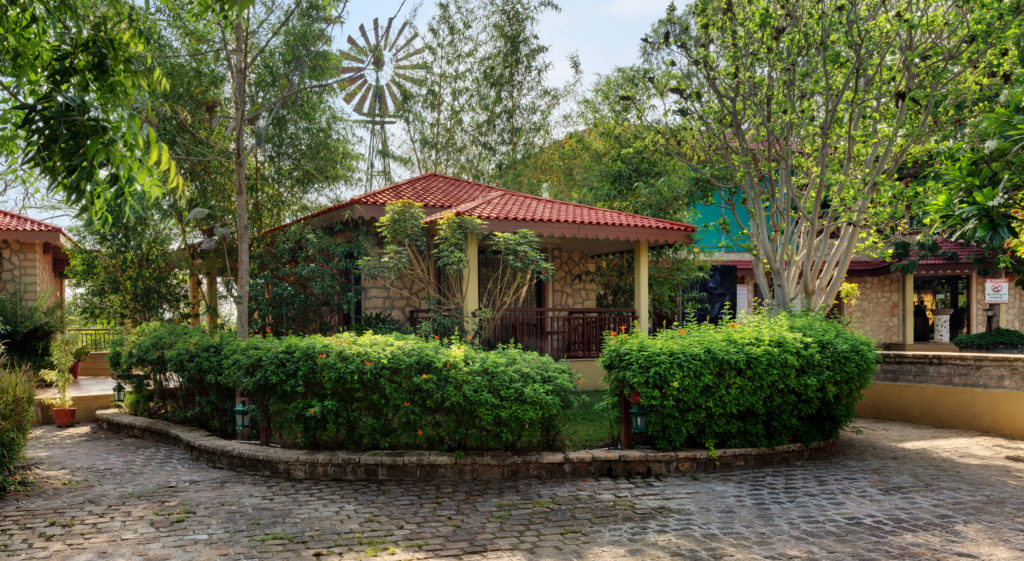
Kishan Kotecha: Eco-friendliness is an integral part of our properties, in everything from services, activities, operations to facilities. For example at an infrastructure level, we use local materials wherever possible in construction. All our resorts have sewage treatment plants that treat wastewater so it can be used to water the huge number of plants each resort houses. This not only helps in plant growth but also helps in recharging the local water table. We also plant trees that attract local species of birds. Our staff often lead cleanup drives, plantation drives and regularly organize activities that promote eco-friendly practices in the neighboring villages and schools. We even try to promote this with guests, especially their children. Regular practices like distribution of cardboard houses for sparrows to guests, competitions, celebrations for environment-related days, minimizing use of plastic, and other initiatives help in engaging guests in being part of eco-sensitive practices. Everything from consumption of resources, waste management, brand collaterals and employee activities to guest celebrations is done keeping the environment in mind. These are a few things we do currently, we are always on the move to make ourselves more eco-friendly.
FEA: What is the advantage of going with Fern Hotels for all your properties?
Kishan Kotecha: Fern Hotels has been very supportive throughout our projects. Everyone in their team gave great pre-opening support to help us design the right product for each location. What we particularly appreciate as owners is the honesty and ease of approach displayed by the team, Most hospitality developers work from their hearts and in doing so often end up spending more than they would have anticipated. Chairman Param Kannampilly and their CEO Suhail Kannampilly actively stops developers like over-investing, despite a direct advantage to their brand image, Ease of approach, extraordinary support and flexibility that really makes Fern a very investor-friendly brand.
Our partnership with Fern Hotels also ensures that operations are as eco-sensitive as possible. As most people in the industry already know Fern Hotels is the first national brand in India to have Eco-Sensitive Hotels as its tagline.



Very interesting read , informative and so well compiled , Makes one feel like making a booking instantaneously .
Thanks Anil .
Thanks Rushad